A small food shop can be referred to in many different ways, depending on the type of store and the products it offers. A restaurant or bar, especially one that serves French food, is one type of small food shop. A restaurant or club that offers cabaret is another. Cafeterias, especially those that existed in the past, are also considered small food shops.
Coffee shops, especially those that existed in the past, are also referred to as small food shops. A grocery store, also known as a grocery store (AE) or grocery store (BE), is a store that mainly sells a general range of food products, both fresh and packaged. Supermarkets are synonymous with grocery stores and are not used to refer to other types of stores that sell food. In the United Kingdom, stores that sell food are distinguished as grocery stores or supermarkets (although in everyday use, people usually use the term supermarket or corner store or convenience store).
The definition of a grocery store varies; U. S. and Canadian definitions of supermarkets exclude some companies that sell food, such as convenience stores. In the United Kingdom, commonly used terms include supermarket (for larger grocery stores) and corner store, convenience store or supermarket (i.e. a grocery store) for smaller stores.
The Oxford English Dictionary states that a grocery store is (especially in British English) a store that sells food and other things used in the home. As early as the 14th century, a storekeeper (or supplier) was a merchant of dry edible products such as spices, peppers, sugar and (later) cocoa, tea and coffee. Because these items were often purchased in bulk, they got their name from the French word for wholesaler or rudest. This, in turn, is derived from the medieval Latin term grossarius, from which the term gross (meaning a quantity of 12 dozen, or 14) is also derived. From the late 17th century to the 1850s, the word supermarket referred to a place where people went to drink. As the number of basic food products available in cans and other less perishable packaging increased, trade expanded its territory.
Today, grocery stores sell a wide range of basic foods, including perishable products such as dairy products, meats, and agricultural products. These products are therefore referred to as edibles. The first supermarkets began as grocery store chains. The development of supermarkets and other large grocery stores has meant that smaller grocery stores often have to create a niche market by selling unique, premium or ethnic foods that are not easily found in supermarkets. A small grocery store can also compete by being located in a mixed commercial and residential area close to its customers and convenient for them.
Organic foods are also becoming a more popular niche market for smaller stores. Many European cities (Rome, for example) have such a dense population and buildings that large supermarkets, in the American sense, cannot replace the neighborhood grocery store. However, Metro stores have been appearing in city centers and cities in many countries, leading to the decline of small independent stores. Many supermarket chains such as Spar or Mace are adopting the usual family business model. Grocery stores can be small or large brick-and-mortar stores or online electronics stores. In developing countries, a significant part of grocery shopping is often made in so-called family homes (i.e., homes where multiple generations live together).
Similarly, in Mexico, corner stores (literally corner stores) are still common places for people to buy food and various items, despite the fact that over time they become less and less popular in the market. A convenience store is a small store that sells a variety of everyday items such as food, snacks, candy, toiletries, soft drinks, tobacco products and newspapers. They differ from general stores and village stores in that they are not found in rural areas and are used as practical additions to larger stores. While larger newer convenience stores may have a fairly wide range of items available for purchase their selection is still limited compared to supermarkets and at many convenience stores there may only be 1 or 2 options available for each item. Convenience stores tend to charge significantly higher prices than regular grocery stores or supermarkets making up for it comfortably by serving more locations and having shorter checkout lines. Many convenience stores offer ready-to-eat foods such as sandwiches for breakfast and other breakfast foods. A delicatessen store is a type of food store where fine foods are sold.
In this sense the name is often abbreviated to charcuterie which means delicacies or fine foods. In English delicatessen originally meant only this specially prepared food. A greengrocer is a retailer of fruits and vegetables; that is foods that are mostly green in color. Greengrocer is primarily a British and Australian term and fruit shops were once common in cities towns and villages. A kosher supermarket or other establishment guided by religious gastronomic traditions also usually has an association with certain ethnic cuisines although not exclusively. A health food store is a type of grocery store that primarily sells health foods organic foods local products and often nutritional supplements. Health food stores usually offer their customers a wider or more specialized selection of foods than conventional grocery stores such as people with special dietary needs. A supermarket, a large form of the traditional supermarket is a self-service store that offers a wide variety of food and household products organized in aisles.
The supermarket usually includes aisles for meat fresh produce dairy products and baked goods along with shelf space reserved for canned and packaged products as well as for various non-food items such as kitchen utensils household cleaning products pharmacy products and pet items. A hypermarket is a superstore that combines a supermarket and department store resulting in an extensive retail facility offering a wide range of products under one roof including groceries clothing electronics toys furniture home appliances books sporting goods cosmetics jewelry etc.
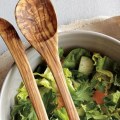
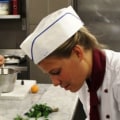
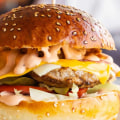
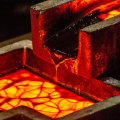

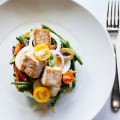

Leave a Comment